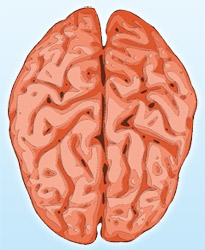
A new research reflects on the possible causes of anorexia and obesity. The research shows that reward circuits in the brain could be the cause of this difference which is found sensitized in anorexic women and desensitized in obese women.
Guido Frank, director of the Developmental Brain Research Program, University of Colorado School of Medicine and colleagues employed functional magnetic resonance imaging (fMRI) to analyze brain activity in 63 women who were suffering from anorexia or obesity. These women were compared to women who are supposedly "normal" weight.
During this study, the Participants were visually conditioned to associate certain shapes with either a sweet or a non-sweet solution and then received the taste solutions desirably or undesirably. This task was linked with brain dopamine function in the past, according to the journal Neuropsychopharmacology reports.
During their study authors reached at the conclusion that in the course of these fMRI sessions, an unexpected sweet-tasting solution resulted in elevated neural motivation of reward systems in anorexic patients and reduced activation in obese persons.
In rodents, food restriction and weight loss have been associated with greater dopamine-related reward responses in the brain, according to a Colorado School statement.
"It is clear that in humans, the brain's reward system helps to regulate food intake," said Frank. "The specific role of these networks in eating disorders such as anorexia nervosa and, conversely, obesity, remains unclear." The results of this study also s indicate that eating behaviour is associated with brain dopamine pathways linked to addictions.
--with inputs from IANS
|
|


Comments: